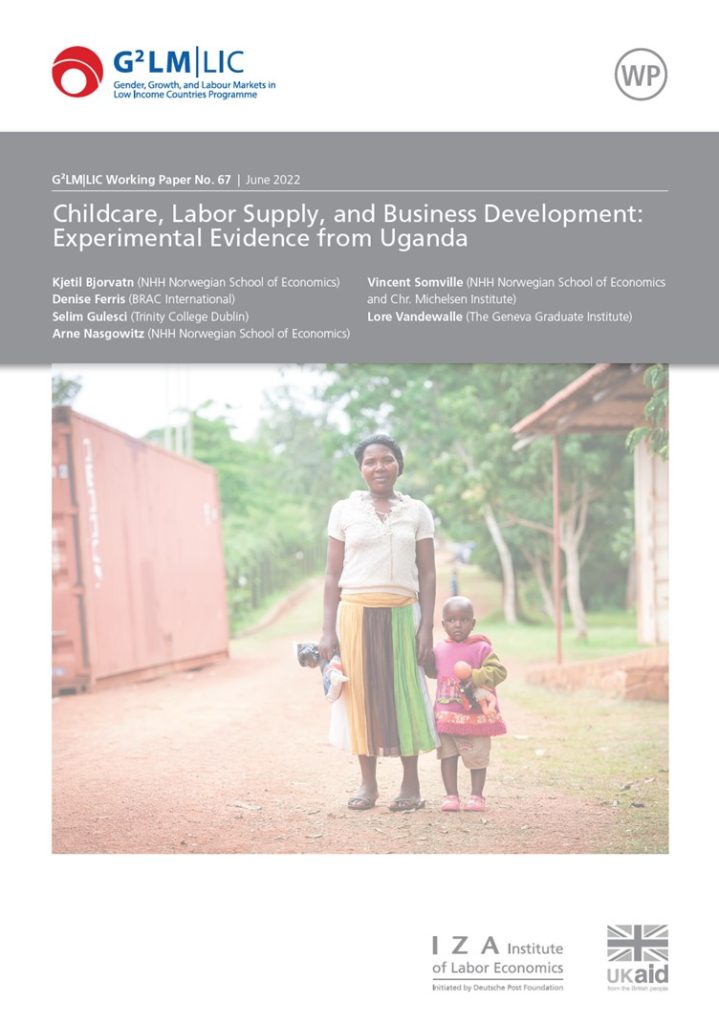
It is almost common knowledge that access to childcare is and has been fundamental for increasing women’s labor force participation in High-Income countries. However, it is not fully clear if the lessons drawn from such countries can be applied to contexts in low-income ones. Since in such settings evidence of the effects of childcare on women’s labor market outcomes is scarce and that of the effects it has on child development mixed, there is a research gap that needs to be filled.
Motivated by this, researchers of this Working Paper set themselves to experimentally assess this research question in Uganda. Their research design is not only intended to analyse the effect of childcare on to the labor market outcomes of women, but also on the ones of husbands and that of the household in general. Researchers therefore selected Women that had children between the age of 3 and 5 at the time of the experiment and either gave a cash grant, a childcare subsidy or nothing. Consequently and with this setting, investigators find that childcare leads to a 44 per cent increase in household income and that the childcare subsidy improves child development while the cash grant does not. Read the detailed Working Paper here.